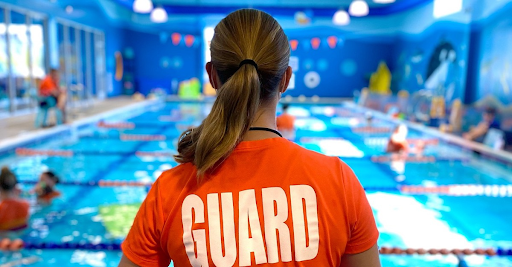Introduction
Lifeguards play a vital role in ensuring water safety, serving as the frontline guardians of swimmers and individuals enjoying aquatic activities. Their presence and expertise are crucial in preventing accidents, responding to emergencies, and maintaining a secure environment in and around water bodies. Lifeguards are extensively trained professionals equipped with the necessary skills and knowledge to prevent drowning incidents and provide immediate assistance when needed. With their watchful eyes, swift response, and commitment to maintaining a safe environment, lifeguards are indispensable in safeguarding lives and promoting a culture of water safety. Whether it’s at the beach, community pools, or water parks, lifeguards are the unsung heroes who uphold the highest standards of professionalism and dedication to protecting individuals of all ages in the water.
The importance of lifeguards in ensuring water safety
Lifeguarding is a vital profession that ensures the safety of individuals in aquatic environments, and Atlanta offers numerous opportunities for aspiring lifeguards. With its bustling recreational centers, public pools, and water parks, Atlanta boasts a thriving job market for those passionate about water safety. Lifeguard jobs in Atlanta provide a unique chance to make a meaningful impact on the community while enjoying a rewarding career.
Skills for Lifeguard Jobs in Atlanta

Lifeguards should focus on a well-rounded fitness routine that includes cardiovascular exercises, such as swimming or running, to enhance their overall endurance. These activities help build lung capacity and improve cardiovascular health, allowing lifeguards to stay alert and active for extended periods of time.
Strength training is equally important for lifeguards, as it enhances muscle strength and power, enabling them to perform water rescues efficiently. Exercises that target the upper body, such as push-ups, pull-ups, and shoulder presses, are particularly beneficial for lifeguards, as they strengthen the muscles needed for swimming and rescue techniques.
1. Physical Fitness and Swim Skills

As guardians of water safety, lifeguards must possess a high level of physical fitness to effectively respond to emergencies and ensure the well-being of swimmers. Engaging in regular exercise helps them develop the endurance, stamina, and strength required for the demands of the job. Swimming long distances and mastering different strokes are essential components of lifeguard training, and maintaining physical fitness enables them to perform these tasks with ease. By incorporating exercise and strength training into their routine, lifeguards can enhance their overall fitness levels, enabling them to be more vigilant, responsive, and confident while on duty. Additionally, staying physically fit allows lifeguards to handle the physical exertion and stress that can arise during rescues, ensuring they can fulfill their vital role effectively. By prioritizing regular exercise and strength training, lifeguards equip themselves with the physical capabilities necessary to be a pillar of safety in aquatic environments.
2. Water Rescue Techniques

It is important for lifeguards to understand the difference between active and passive victim rescues. Active victim rescues involve rescuing a conscious and responsive swimmer in distress. Lifeguards must be trained to approach the swimmer safely and provide immediate assistance, ensuring both their own safety and the swimmer’s well-being.
On the other hand, passive victim rescues involve rescuing an unconscious or unresponsive individual from the water. Lifeguards must be proficient in recognizing signs of drowning and be trained to perform techniques such as the “Reach, Throw, Row, and Go” method. This includes using rescue equipment like throw ropes, reaching aids, or watercrafts to safely reach and retrieve the victim.
Moreover, lifeguards must also be knowledgeable about different drowning scenarios. For example, a distressed swimmer may exhibit behaviors such as gasping for air, extending their arms to the side, or trying to roll onto their back. Recognizing these signs promptly allows lifeguards to respond swiftly and effectively.
3. First Aid and CPR

One of the most critical skills that every lifeguard must possess is the knowledge of first aid and CPR. In the event of an emergency, lifeguards are often the first responders, and their quick and effective actions can make a significant difference in saving lives. Whether it’s a minor injury or a life-threatening situation, being trained in first aid and CPR equips lifeguards with the necessary skills to provide immediate care and stabilize the victim until professional medical help arrives.
First aid knowledge enables lifeguards to assess and respond to various medical emergencies that can occur in and around the water. From cuts and bruises to sprains and fractures, lifeguards must be able to identify and administer appropriate first aid techniques promptly. This includes cleaning and dressing wounds, applying splints or bandages, and providing pain relief measures. Additionally, lifeguards must be trained in recognizing symptoms of more severe conditions like heart attacks, strokes, or seizures and be able to initiate appropriate actions to mitigate further harm.
4. Communication and Customer Service

In the fast-paced and dynamic environment of lifeguarding, effective communication and exceptional customer service skills are vital for ensuring the safety and satisfaction of patrons. Lifeguards must be able to communicate clearly and concisely with both fellow lifeguards and pool visitors, creating an atmosphere of trust and professionalism. Clear verbal communication allows lifeguards to provide instructions, give warnings, and respond to inquiries promptly.
Active listening is equally important for lifeguards, as it enables them to understand the needs and concerns of pool visitors. By attentively listening to patrons, lifeguards can address questions, provide reassurance, and offer assistance when needed. This skill helps foster positive relationships and builds trust between lifeguards and the individuals they serve.
5. Vigilance and Situational Awareness

Vigilance and situational awareness are paramount skills for lifeguards working in Atlanta. As the first line of defense in ensuring water safety, lifeguards must maintain constant vigilance while on duty. This means actively scanning the pool area, paying close attention to every swimmer, and identifying any potential risks or hazards. By staying alert and focused, lifeguards can quickly respond to emergencies and prevent accidents from occurring.
Developing strong situational awareness goes hand in hand with vigilance. Lifeguards must be able to anticipate potential dangers and respond proactively. This involves being aware of changes in water conditions, such as sudden drop-offs or slippery surfaces, as well as closely monitoring patron behavior for signs of distress or risky behavior.
A skilled lifeguard can quickly assess a situation, make split-second decisions, and take appropriate action to prevent accidents or provide immediate assistance. By honing their situational awareness, lifeguards can effectively identify and manage hazards in and around the pool, ensuring a safe and enjoyable environment for all patrons.
6. Teamwork and Collaboration

In the dynamic and fast-paced world of lifeguarding, teamwork, and collaboration are essential skills that can make a significant difference in ensuring water safety. Lifeguards often work in teams, where effective communication and cooperation are crucial for swift and coordinated responses to emergencies. Let’s explore why teamwork and collaboration are vital for lifeguards and how they contribute to creating a safer aquatic environment.
First and foremost, working effectively as part of a lifeguard team is essential for seamless operations and optimal surveillance. Each team member plays a unique role, and understanding these roles is crucial for efficient functioning. Lifeguards must establish clear lines of communication and coordination, ensuring that everyone is aware of their responsibilities and can support each other when needed. This collaborative approach allows for effective coverage of the pool area, reducing the risk of incidents going unnoticed.
Conclusion:
In conclusion, lifeguarding plays a crucial role in ensuring water safety and mastering the six essential skills outlined in this article is vital for success in lifeguard jobs in Atlanta. From physical fitness and swim skills to water rescue techniques, first aid and CPR knowledge, communication and customer service, vigilance and situational awareness, teamwork and collaboration, and time management and organization, each skill plays a significant role in the effective performance of lifeguards. If you are considering a career as a lifeguard in Atlanta, investing time and effort into developing these skills will undoubtedly open up opportunities and pave the way for a fulfilling and rewarding career.
FAQ
The age requirements for lifeguard jobs in Atlanta may vary depending on the facility and its specific policies. However, many places require lifeguards to be at least 16 years old or older.
Wearing corrective lenses, such as glasses or contact lenses, does not generally disqualify individuals from becoming lifeguards in Atlanta. However, it’s important to ensure that your vision is corrected to a level that allows you to effectively perform your duties.
Lifeguards in Atlanta may face challenges such as dealing with crowded pool areas, maintaining constant vigilance, handling difficult patrons, and being exposed to various weather conditions.
Lifeguards in Atlanta typically undergo regular training and recertification courses. The frequency varies, but it is usually required every one to two years to stay updated on the latest techniques and maintain proficiency in lifesaving skills.

